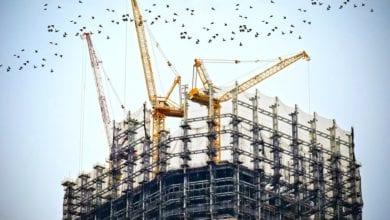How Beyoncé and Harry Styles boosted the UK hotel industry
Cristina Balekjian, director of hospitality analytics from CoStar talks to Hotel Owner about how events affect the hotel sector, why this year has seen such growth and why certain areas without events or international demand have seen a rise

Last year was a year of recovery for the hotel sector following the pandemic and 2023 has been no different. Data from CoStar shows that the hotel sector saw an average RevPAR increase of 10% in the summer mostly driven by the returning international demand and big events.
This year Britain has seen some huge events, from Eurovision and The Open Championship in Liverpool to mega tours from artists such as Beyonce, Harry Styles and Arctic Monkeys. Events can help bring business to hotels as people travel to see them or be a part of them.
The event effect
The effect of an event on a hotel can vary. Cristina Balekjian, director of hospitality analytics at CoStar explains that for some events like football matches, hotels will only really see a boost in guest numbers for the day before and day of and sometimes the day after. This is similar for concerts.
However, she stated that for longer and more high profile events hotels see much more benefit. For example, the Commonwealth Games in Birmingham. Not only does the event last multiple days but there is also a lot of set up work which takes place before the start of the event and the people involved in that need accommodation.
“Matches and concerts are mostly see benefit the day before and on the day, and then people go, but those bigger high profile events, it may last a little bit longer given that you have to prepare everything and there might be people coming set up and and all of those sort of factors that come into play,” says xx.
Even with the wide variation in the type of events Balekjian illustrates that all types of hotels, budget or boutique, stand to gain from events. Whatever the price point of a hotel there is always going to be some demand from someone connected to the event.
In this instance, she refers to the Beyonce tour to illustrate her point. While Beyonce would stay in a luxury hotel wherever she played, her crew would likely stay in a more mid-price hotel. Alongside this, those coming to see her play would likely stay in budget accommodation showing that one event can benefit a wide range of hotels.
Balekjian also makes reference to events that have official accommodation partners. “There are also events where the event organisers will have partnered with hotels, to be their official accommodation provider, and those events have benefits because then they’ll book, however many rooms for a team or a group of people and I think everyone in the end benefits,” she says.
The other factors
While events and international demand have had a big effect on hotel RevPAR this year there are also a number of other factors that can affect it, especially in markets that do not have many big events and are not traditional tourist destinations.
For example, the recent data showed that RevPAR in Aberdeen was up over 10% year-on-year. Balekjian reveals that RevPAR for hotels in Aberdeen is intrinsically linked to oil prices.
“Aberdeen tends to be closely linked to oil prices, given the influence of the oil and gas industry in Aberdeen and once oil prices started to kind of go up and the hotel market really surged last year. I think Aberdeen has managed to grow on the back of that performance on the back of that. But also another thing that needs to be taken into account is that the Aberdeen improvements are coming from a very low base.
“So if we think before the oil price crash in 2015 Aberdeen hotels did extremely well, they did 80% occupancy, £100 average rate and it has never come back that hasn’t come back yet. So Aberdeen is now in a place where it’s a bit more stabilised,” she says.
She also explains that RevPAR has seen such a big increase in certain less desirable markets as a result of hotels being forced to close as a result of the pandemic or the rising cost of running a hotel. In simple terms, less available rooms means less competition but also means that less rooms are taken into consideration when calculating the average RevPAR. This is illustrated by the 10% increase in RevPAR in the Swindon and Wiltshire area.
Looking ahead
With two strong years of RevPAR growth in a row since the pandemic it would be fair to question whether this trend will continue, especially in the face of the cost of living. However, Balekjian believes that this cost of living may actually strengthen hotel demand around events as people prioritise spending on events.
“We have seen a bit of a shift in what people prefer to do or spend money on. Instead of buying a new car or buying more clothes, people will save and go see a concert that they really want to see because they have never seen that artist before. They may want to spend the money doing that and with that may say you know what, I’ll do the whole weekend away and I’ll stay in Edinburgh because I’ve never been to Edinburgh either.
“We’re going to a more stabilised period where we might not see as many people as we did before but they’ll probably just be selective and say ‘I definitely want to go the Foo Fighters next year’ or ‘the only thing is I’m going to spend money is going to be that Taylor Swift concert’,” says Balekjian.
As for predictions of the markets that do well, Balekjian expects the big tourist destinations like London and Manchester to continue growing as they continue to add rooms and international demand particularly from Asia continues to return. She also predicts that as the cost of living continues to bite, more people will stay in Britain for their holiday’s rather than heading abroad which will help the hotel industry in the UK.









